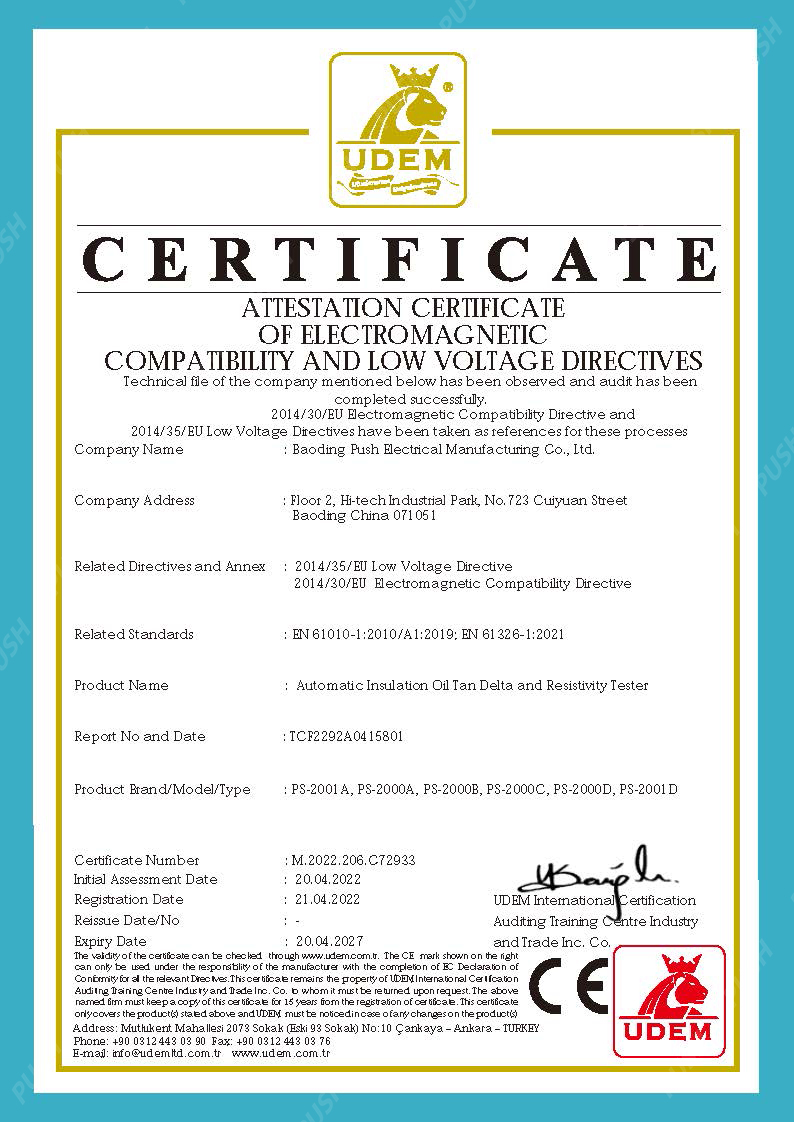 English
English


Understanding the Role of Mass Spectrometer Detectors in Enhancing Gas Chromatography Analysis Techniques
The Role of Mass Spectrometer Detectors in Gas Chromatography
Gas chromatography (GC) is a vital analytical technique used to separate and analyze compounds that can be vaporized without decomposition. This method is widely utilized in various industries, including pharmaceuticals, environmental monitoring, and food safety. In gas chromatography, the application of mass spectrometry (MS) as a detector has revolutionized analytical capabilities, offering enhanced sensitivity, specificity, and structural information about the analytes.
Fundamentals of Gas Chromatography
In gas chromatography, a sample is vaporized and transported through a column packed with adsorbent material by an inert carrier gas. Different components in the sample mixture interact with the stationary phase in the column, leading to separation based on their boiling points and affinity for the stationary phase. However, efficient separation is only part of the analytical process; characterizing and quantifying the individual components is equally critical.
Integration of Mass Spectrometry
Mass spectrometry serves as an advanced detector that complements gas chromatography by providing detailed information about the molecular mass and structure of the separated compounds. When the separated compounds exit the chromatographic column, they enter the mass spectrometer, where they are ionized and fragmented. The resulting ions are then analyzed based on their mass-to-charge ratios, generating a mass spectrum for each analyte.
One of the primary advantages of using a mass spectrometer in conjunction with gas chromatography (GC-MS) is its high sensitivity. Mass spectrometry can detect compounds at very low concentrations, often in the parts per billion (ppb) range. This sensitivity is crucial for applications that require the detection of trace contaminants or toxins, such as in environmental analysis of pollutants or in food safety testing for pesticide residues.
Enhanced Specificity and Structural Information
mass spectrometer detector in gas chromatography

Besides sensitivity, the specificity of mass spectrometry is another significant benefit. GC-MS allows for the identification of compounds based on their unique mass spectra, which serve as fingerprints for different substances. This feature is particularly useful in complex mixtures, where many compounds may co-elute from the chromatographic column. By comparing the observed mass spectra with reference libraries, analysts can quickly and accurately identify substances.
Moreover, the capability of mass spectrometry to provide structural information about the compounds is invaluable. When molecules are ionized, they often break into smaller fragments, producing a variety of ions. The pattern and intensity of these fragments can provide insights into the molecular structure, allowing chemists to deduce information about functional groups and overall molecular architecture. This structural elucidation can prove critical in research and development settings, where understanding the properties of new compounds is essential.
Challenges and Considerations
Despite its advantages, the integration of mass spectrometry with gas chromatography also presents challenges. The complexity of mass spectra can sometimes make data interpretation difficult, particularly for compounds that are isomeric or exhibit similar fragmentation patterns. Additionally, maintaining the performance and calibration of the mass spectrometer requires a rigorous quality control regime to ensure accurate and reliable results.
Furthermore, the cost of mass spectrometers can be prohibitive for smaller labs or organizations. However, the investment is often justified by the depth of analysis and the breadth of applications made possible by GC-MS.
Conclusion
Mass spectrometer detectors have significantly enhanced the capabilities of gas chromatography, enabling sophisticated analysis of complex mixtures with high sensitivity and specificity. The combination of separation and in-depth identification provided by GC-MS makes it an indispensable tool in various fields, from environmental science to pharmaceuticals. As technology continues to advance, the integration of these methodologies will undoubtedly expand, leading to even broader applications in analytical chemistry.
-
Differences between open cup flash point tester and closed cup flash point testerNewsOct.31,2024
-
The Reliable Load Tap ChangerNewsOct.23,2024
-
The Essential Guide to Hipot TestersNewsOct.23,2024
-
The Digital Insulation TesterNewsOct.23,2024
-
The Best Earth Loop Impedance Tester for SaleNewsOct.23,2024
-
Tan Delta Tester--The Essential Tool for Electrical Insulation TestingNewsOct.23,2024





